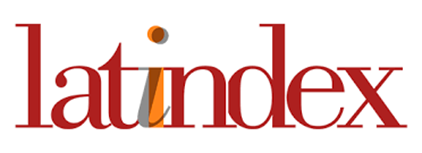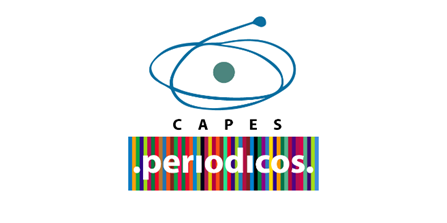A NATUREZA DO PODER EM CONDOMÍNIO
DOI:
https://doi.org/10.14210/rdp.v18n2.p310-327Palavras-chave:
Coronavírus, Microssistema Jurídico, Pandemia, SíndicoResumo
Contextualização: Diante da pandemia ocasionada pelo coronavírus, muito se discutiu a respeito das atribuições do síndico e suas prerrogativas em situações emergenciais, no entanto, a análise da questão apenas pela legislação disponível não parece ser suficiente para que se compreenda as atribuições do condomínio em sua regulação, é necessária uma reflexão profunda que permita identificar a verdadeira natureza do poder em condomínio sob um aspecto histórico e filosófico.
Objetivo: A intenção é oferecer uma visão do poder em condomínio como uma centelha dos poderes da República, observando que dentro deste conjunto maior, há outros subconjuntos organizados em Estados e Cidades, havendo ainda no condomínio um resquício destes poderes, como a capacidade de autorregulação pela convenção de condomínio, escolhendo representantes e conselhos por meio de manifestações democráticas em um ambiente privado.
Metodologia: o artigo está dividido nos seguintes elementos: a) um levantamento rápido acerca do histórico da sustentabilidade principalmente desde o século 20; b) os desafios do ODS 4 (educação de qualidade) no Brasil; c) A metodologia adotada na pesquisa; d) os dilemas da educação no município de Caçador, principalmente no Ensino Médio, e) alguns gráficos resultantes da pesquisa desenvolvida e f) considerações finais. É precípuo apresentar que a pesquisa aqui apresentada teve caráter metodológico bibliográfico, com análise quanti-qualitativa de dados.
Resultados: Se conclui que a República seria o conjunto principal, contendo a União, Estados, Distrito Federal, Municípios e Condomínios Edilícios em subconjuntos próprios sucessivos. Evidenciando a associação jusfilosófica do Condomínio Edilício com um microssistema jurídico democrático, com características próprias de legislação e eleição, com poderes legislativos na deliberação de seus membros para sua autorregulação, e poderes executivos personificados na figura do síndico, demonstrando inclusive sua capacidade de atuar em momentos de crise a favor dos interesses comuns.
Downloads
Referências
ABRAHÃO, Marcela Rosa. As Restrições aos Direitos Fundamentais por Ato Normativo do Poder Executivo. São Paulo: Almedina Brasil, 2017.
AGAMBEN, Giorgio. Estado de Exceção. São Paulo: Boitempo, 2004.
BOBBIO, Norberto. O Positivismo Jurídico: Lições de Filosofia do Direito. São Paulo: Ícone, 1995.
CANETTI, Elias. Massa e Poder. Tradução: Sérgio Tellarolli. São Paulo: Schwarcz Ltda, 2009.
ELIAS FILHO, Rubens Carmo. Condomínio Edilício: Aspectos de Direito Material e Processual. São Paulo: Atlas S.A., 2015.
GERBRAN, Raimunda Abou. OLIVEIRA, Patrícia Zaccarelli. O Profissional Docente do Direito: Refletindo sobre sua prática pedagógica. Hollos ISSN 1807 - 1600, Ano 34, 2018, Vol. 3, p. 314-336. Disponível em: https://www2.ifrn.edu.br/ojs/index.php/HOLOS/article/view/4206/pdf. Acesso em 10 de março de 2022. DOI: https://doi.org/10.15628/holos.2018.4206
HALMOS, Paul Richard. Teoria Ingênua dos Conjuntos. São Paulo: Polígono S.A., 1970.
HOBBES, Thomas. Leviatã ou Matéria, Forma e Poder de um Estado Eclesiástico e Civil. Tradução: João Paulo Monteiro e Ana Beatriz Nizza da Silva. São Paulo: Martins Fontes, 2003.
MACHADO, Antônio Claudio da Costa; FERRAZ, Anna Candida da Cunha; MELO, Adriana Zawada. Constituição Federal interpretada: artigo por artigo, parágrafo por parágrafo. Barueri: Manole Ltda., 2015.
MORAES, Alexandre de. Direito Constitucional 35ª Edição. São Paulo: Atlas Ltda, 2019.
PEREIRA, Caio Mario da Silva. Condomínio e Incorporações. Rio de Janeiro: Editora Forense Ltda., 2018.
RIZZARDO, Arnaldo. Condomínio, Edifício e Incorporação Imobiliária. Rio de Laneiro: Editora Forense Ltda., 2019.
ROUSSEAU, Jean-Jacques. Do Contrato Social. Ridendo Castigat Mores, 2020.
WOLKMER, Antônio Carlos. A História do Direito no Brasil. Rio de Janeiro: Forense, 2003.
Downloads
Publicado
Como Citar
Edição
Seção
Licença
Na qualidade de autor(es) da colaboração, original e inédita, sobre o qual me(nos) responsabilizo(amos) civil e penalmente pelo seu conteúdo, após ter lido as diretrizes para autores, concordado(amos) com o Regulamento da Revista Eletrônica Direito e Política e autorizo(amos) a publicação na rede mundial de computadores (Internet), permitindo, também, que sua linguagem possa ser reformulada, caso seja necessário, sem que me(nos) seja devido qualquer pagamento a título de direitos autorais, podendo qualquer interessado acessá-lo e/ou reproduzi-lo mediante download, desde que obedeçam os Direitos Autorais.

















